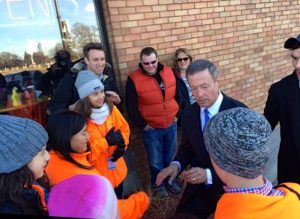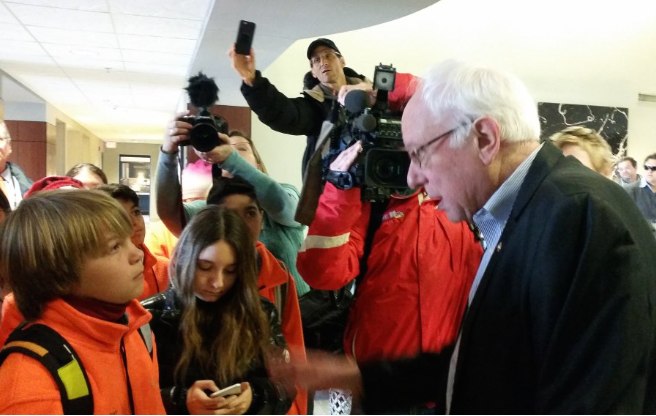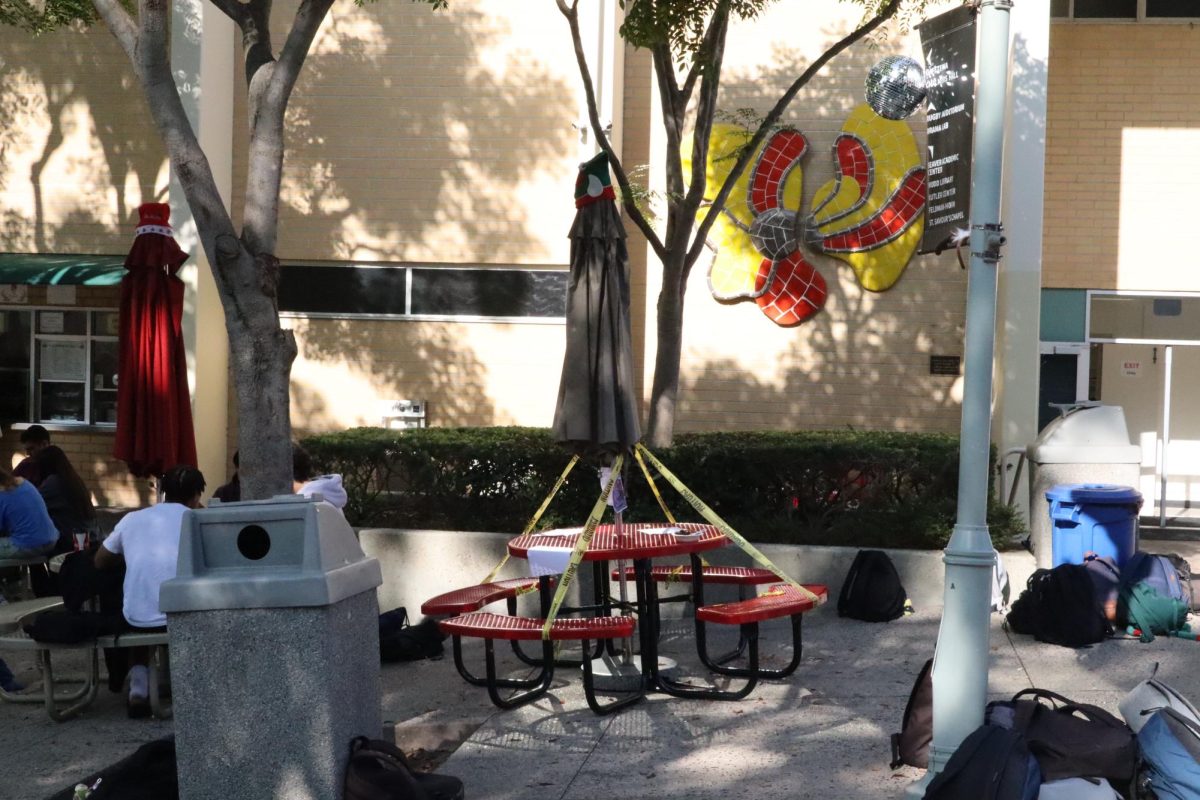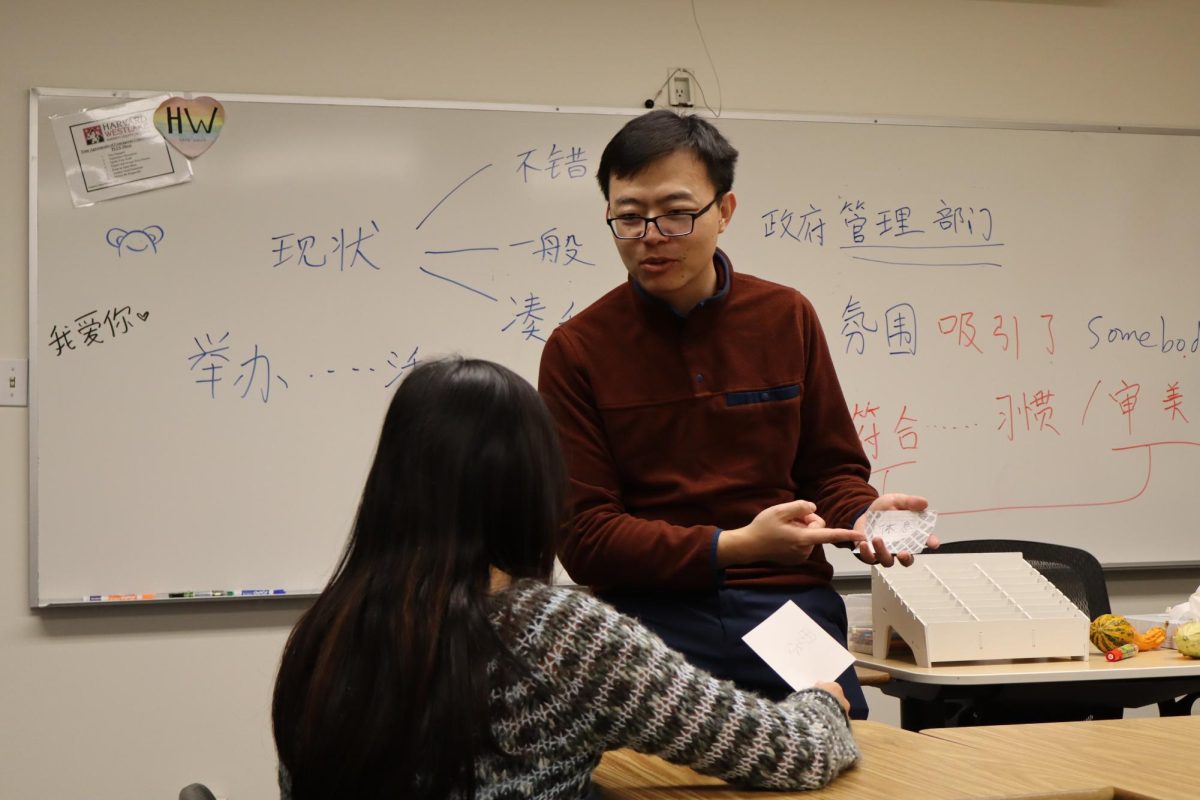DES MOINES, Iowa — As former Alaska Governor Sarah Palin waited in the airport here Tuesday to catch her pre-blizzard delayed flight, she continuously turned away interviews from reporters eager to hear her thoughts on Donald Trump’s loss to Ted Cruz from the previous night’s caucus.
She and her daughter, Willow, refused everyone except for 19 students from Carlthorp School in Santa Monica and me while we were traveling back to Los Angeles.
She talked to us about how she wants the country to no longer be dependent on foreign oil and briefly remarked on Trump’s loss, after she had predicted him to win Iowa.
“Trump is my favorite candidate,” she said. “It’s exciting when it’s that close.”
The interview, which Palin said was the “best interview of the week,” was an exciting culminating moment for the students and me after the four days in Iowa that included cornering Bernie Sanders, who was staying at our hotel, confronting Martin O’Malley about his low poll numbers going into the caucus and questioning Ben Carson about ISIS and his plans for education reforms.
The students, ages 11 or 12 years old, learned within two minutes of arriving at the hotel that Sanders was staying on the fourth floor. As a good, responsible chaperone, I of course allowed them to “get lost” up on the fourth floor, ultimately to no avail.
I was skeptical that we would get the chance to talk with the senator, but it proved to be too difficult for him to avoid the sixth graders clad with bright orange fleeces on his way out of the lobby, the day of the caucuses Monday.
“Politics is very important business, and if any of your friends tell you that you should not be thinking about the important issues facing our country, that’s not right,” Sanders said. “So I want you all to be thinking and discussing with each other and debating where you think our country should go and what the problems are, and I hope that from this experience, you all be involved in the political process for the rest of your lives. Democracy means that everybody should be participating, not just a few.”
Earlier that day, we dragged ourselves out of bed at 7 a.m. to an O’Malley rally that I had nearly decided to skip. It was 28 degrees and O’Malley was not on the top of my list of candidates to meet. He had been polling low since he declared his candidacy, and I assumed it was unlikely that he would comment on the subject.
Of course, one of the sixth graders, Gia Cabral, proved me wrong. She walked right up to him at the small Des Moines coffee shop, stated the latest poll numbers and asked who would he want his supporters to caucus for instead, since he would most likely not get the 15 percent minimum at each caucus location to be viable.
“I’m not answering poll questions,” he said. “I’m not dropping out of the race, and I want my supporters to stay strong because I am here to defy expectations. I want my supporters to talk to their friends in the caucus. Usually the caucus doesn’t turn out the way the polls say. Polls shmolls.”

O’Malley was partly right. The polls had expected Trump, not Senator Ted Cruz, to win Iowa on the Republican side, but O’Malley suspended his campaign when he could not break 1 percent as the results came in.
As I was replaying my own short conversation with O’Malley about climate change over in my head, Carson arrived for his interview with National Public Radio. I ran over to join the students, who were already talking about how Carson told them that to defeat ISIS they must study Islam. They’d also asked him about his plans for education reform, and he’d given them a statistic about those who cannot join the military due to lack of education.
They were not impressed by either answer.
I hung back while they chatted, wanting them to ask their questions before I talked to him about equal pay and abortion. Of course, he was shuffled away by his handlers to go to NPR just as he was finishing his answers.
That night, we made our final trip to a caucus in West Des Moines. The students had spent weeks working with the nonprofit organization KidUnity, doing workshops about civics, the candidates and journalism in preparation for writing a first-hand account about one of the Iowa caucuses.
They took careful notes as we watched the room split between the Hillary Clinton and Sanders supporters, and quietly conducted interviews as the Iowans attempted to convince those who were undecided or O’Malley supporters to join their side.
They were able to write informative blog posts about their experiences, and I was happy to hear from them that over the course of their workshops and the culminating trip that they had not only learned so much about journalism and politics, but also that after talking to Sanders, Carson and O’Malley and attending a Clinton rally that they had actually changed their opinions about who they want to win the presidency, and they recognized why it was so important to be informed about the issues the nation had been talking about.
“As the next generation of voters, it’s important that we study the candidates, issues and process,” said Will Sheehy, one of the students. “Our classroom is on the front lines.”






























